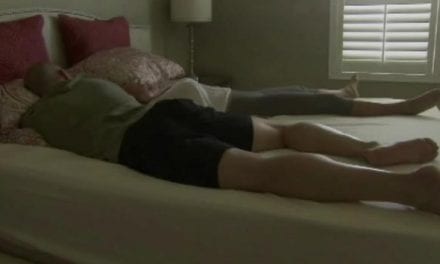Raj Dasgupta, MD, a fellow of the American Academy of Sleep Medicine, discusses the impact of winter weather on sleep with Yahoo! Health.
The changing weather conditions affect more than your routine outdoor activities—It actually disrupts some of your body’s natural processes, which is why you may want to assume the fetal position more often than not this time of year.
Dr. Raj Dasgupta, MD, a Fellow of the American Academy of Sleep Medicine (AASM), clued us in as to why the winter has such an influence over our sleep cycles. The kicker is, while you may want to sleep more in the winter, it’s actually harder to achieve a consistent good night’s sleep.
Here’s why you can’t stop dreaming of your bed all day, every day, and what’s actually preventing you from getting the hours you really need.
1) Less Light
It’s not just in your head: As the days get shorter, our desire to sleep grows. The lack of natural light in the winter suppresses the release of melatonin—the hormone that tells your body it’s time to settle down to prep for sleep—and as a result disrupts our internal circadian rhythms. During the warmer months, as it gets darker during the end of the day your body produces more melatonin to signal that it’s time to get ready for bed, but with the sun going down earlier this time of year, that process starts earlier. Dasgupta points out that during the winter it’s gloomy all day, so you won’t get the suppression of melatonin you would during other times of the year and your body won’t have a clear distinction of daytime and nighttime, leading to an increased desire to sleep and difficulty sleeping once you actually pass out. What’s more, the lack of light in the winter can lead to certain psychiatric disorders like seasonal depressive disorder. Dasgupta suggests making a point of getting more sunlight in the winter. Take walks during your lunch or just step outside for a few minutes and bask in the sun—every little bit helps!


